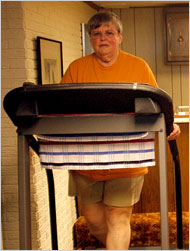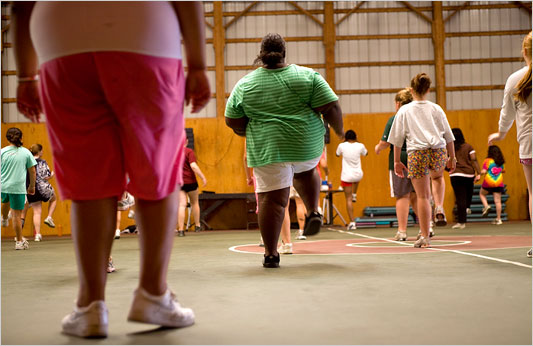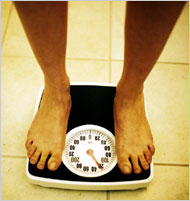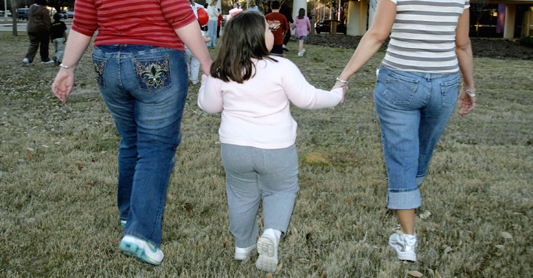Dieters are more likely to lose weight and keep it off if they have contact with a weight-loss counselor, a new study shows.
The report, led by researchers at Duke University Medical Center and published today in The Journal of the American Medical Association, shows just how difficult it is for dieters to maintain their weight loss. The study began with 1,685 overweight or obese adults who weighed on average 213 pounds. The group was successful at losing weight, with an average weight loss after six months of 18.7 pounds.
About 1,000 people who lost 9 pounds or more took part in the second phase of the study. Some used an Internet-based weight counseling tool, while others had regular personal contact with a weight-loss counselor. A third group received basic instruction on maintaining weight loss, and those dieters attempted to keep the weight off on their own.
Monthly personal contact meant the participants had telephone contact with a counselor for 5 to 15 minutes each month, except for every fourth month, when they had a 45- to 60-minute individual face-to-face session. The Web-based program gave participants unlimited access to a Web site designed to support weight loss maintenance, with interactive features allowing participants to set personal goals and action plans for the next week and to graph personal data over time.
More than two years later, most everyone had gained back some of their weight. The people who tried to maintain their weight on their own fared the worst, gaining back an average of 12.1 pounds. People who used the Web-based tool gained back 11.5 pounds. However, those people who took part in the personal contact group gained back the least — regaining 8.8 pounds.
Although personal contact only resulted in a 3.3 pound additional benefit, the study authors noted that even small losses can improve health. Every kilogram (2.2 pounds) of weight loss is associated with an average decrease in systolic blood pressure of 1.0 to 2.4 mm Hg and a 16 percent reduction in diabetes risk, the authors said. At the end of the study, more than 45 percent of those who had received counseling were still maintaining at least 9 pounds of weight loss, an amount with clear clinical benefits, they noted.
 How accurate are your exercise estimates? (Eric Thayer for The New York Times)
How accurate are your exercise estimates? (Eric Thayer for The New York Times)
















 Healthy living doesn't happen at the doctor's office. The road to better health is paved with the small decisions we make every day. It's about the choices we make when we buy groceries, drive our cars and hang out with our kids. Join columnist Tara Parker-Pope as she sifts through medical research and expert opinions for practical advice to help readers take control of their health and live well every day. You can reach Ms. Parker-Pope at
Healthy living doesn't happen at the doctor's office. The road to better health is paved with the small decisions we make every day. It's about the choices we make when we buy groceries, drive our cars and hang out with our kids. Join columnist Tara Parker-Pope as she sifts through medical research and expert opinions for practical advice to help readers take control of their health and live well every day. You can reach Ms. Parker-Pope at 

